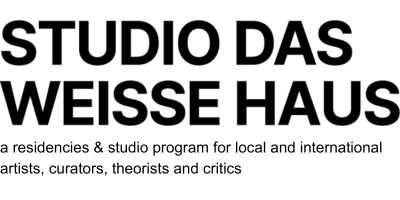Weekly Conversations… with Julia Gaisbacher

Julia Gaisbacher just recently moved into one of our studios at Hegelgasse 14. Therefore, we’d like to introduce her within this series, in order to give you an idea about her practice and the latest projects.
Welcome to studio das weisse haus, Julia! On your website you describe yourself as an artist and photographer. Can you tell us a little bit more about your artistic practice?
I’m actually trained as art historian and sculptor but during my studies at the Art University in Dresden I started to focus on photography, hence I am a self-thought photographer. The topics that I recently dealt with are located around the questions of housing, public and private space: who has the power to decide about it and what social justice or injustice can be seen through that? In addition to the research, the starting point is mostly to take photographic sketches, in order to understand the places/spaces and to get a feeling for the the topic. Based on this material I develop my concepts.
In 2018 you already had a cooperation with das weisse haus, as your project “One Day You Will Miss Me” was awarded with the Erste Bank ExtraVALUE Art Award Vienna. Is the project, in which you critically engage with a city development project in Belgrade, still ongoing or has your artistic attention been drawn to another topic?
Actually, I had planned to finish “One Day You Will Miss Me” this year but due to the lockdowns and travel restrictions it was not possible for me to travel to Belgrade, so I want to continue in 2021. Next to other projects that are also located around the topic of private and public space, I will continue my Belgrade-work with a new piece about the so-called “Zagreb Manhattan” project in Zagreb, which was supposed to be built by the same company as in Belgrade but due to resistance of the citizens it could be stopped.
How does the current restriction in the cause of the pandemic affect your work and its presentation?
In March and April, with all these uncertainties, it was not easy to keep up with my workflow, also because some planned exhibitions and projects got cancelled or postponed. Later on, I tried to see the positive side, f. e. I had more time to work on my new projects, had more time for reading or attending online masterclasses and lectures. I tried to see the lockdowns as kind of a reset to think about my everyday life, working habits and if I want to continue in this way or maybe want to change things. I got two commissioned works for exhibitions next year, I am very happy about the new studio and I am also happy how my projects developed, hence I am doing fine now.
Interview: Juliana Furthner
